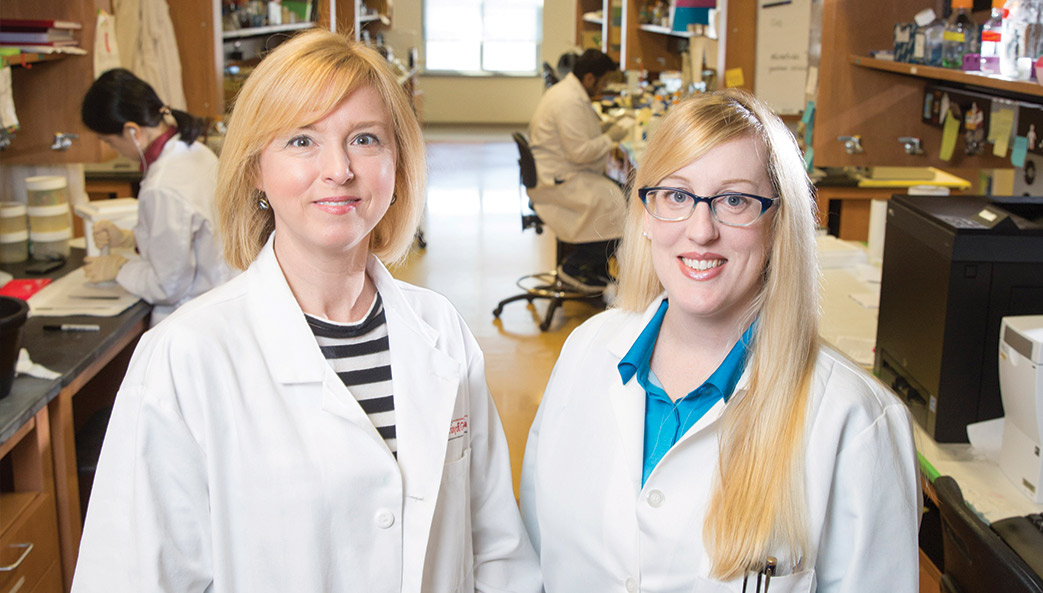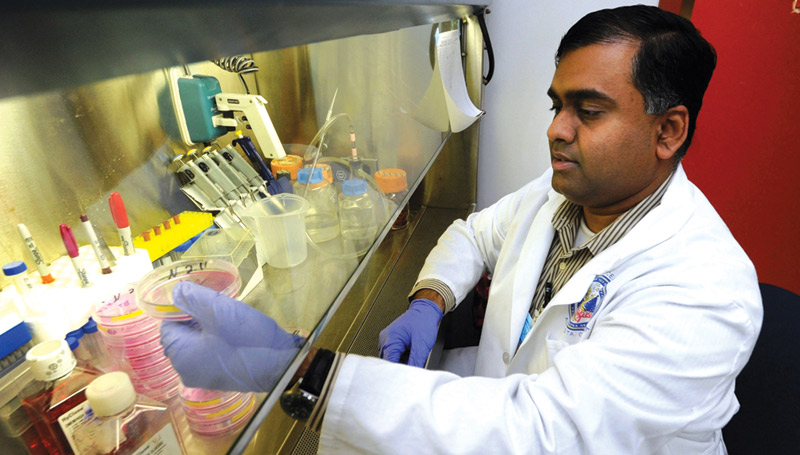A sad reality for many women battling ovarian cancer is that they will likely endure treatment more than once. The disease has a high rate of recurrence, and when it does return, it has often developed resistance to chemotherapy.
But researchers at UGA may have found a reason why this happens. College of Pharmacy associate professors Mandi Murph and Shelley Hooks have shown that a protein called RGS10 can impact the effectiveness of ovarian chemotherapy in the laboratory.
“Chemoresistance to ovarian cancer is what kills women,” Hooks said. “It’s the deadliest gynecologic cancer. Most women with ovarian cancer will have their tumors come back.”
“Within two years, 85 percent of women will have their cancer come back in a more aggressive form,” Murph said. “It is during that time that they won’t respond to the chemotherapy.”
Although it’s too soon to tell, their discovery could alter future treatment strategies. For now, it solves a puzzling observation they originally made about RGS10 years ago.
Their paper, “Cellular deficiency in the RGS10 protein facilitates chemoresistant ovarian cancer,” reviews over five years’ worth of research on RGS10 and was published in the journal Future Medicinal Chemistry.
“RGS10 is basically an off switch. It does very little,” Murph said. “However, it’s important because when it gets turned off, cells become resistant to chemotherapy.”
In previous studies, Hooks and Murph tested cells to see how they would react to common chemotherapy medicines. They were able to manipulate the sensitivity of ovarian cancer cells to common chemotherapy treatments like paclitaxel, cisplatin and vincristine by changing RGS10 expression.
“Depending on the expression levels of RGS10, the chemotherapy for ovarian cancer is more or less effective,” Hooks explained. “If there were a way to reverse silencing of the RGS10 protein, then we could potentially restore sensitivity to drugs.” The Hooks lab is currently working to screen libraries of compounds to identify molecules that may restore RGS10 expression in cells.
Murph also discovered that mTOR signaling is enhanced by the loss of RGS10 expression.
“mTOR essentially determines the survival of [cells], which in turn indicates whether chemotherapy will be sufficient to kill the cells,” she said. “It’s exciting to have found this piece of the puzzle.”
Murph recommends more research on mTOR inhibitors to see how they can be combined with traditional chemotherapy to reduce resistance among cells.
Currently, platinum chemotherapy drugs, like paclitaxel and carboplatin are used as a one-size-fits-all treatment for ovarian cancer patients. However, chemoresistance to platinum drugs remains a serious challenge to curing ovarian cancer.
“Five years ago, this field of RGS10 cancer research didn’t exist,” said Murph. “But Dr. Hooks and I have been able to create this area of research and lead it. Before no one knew or cared about RGS10 effects in cancer cells. Now we have more research that could contribute to improving chemotherapy.”






